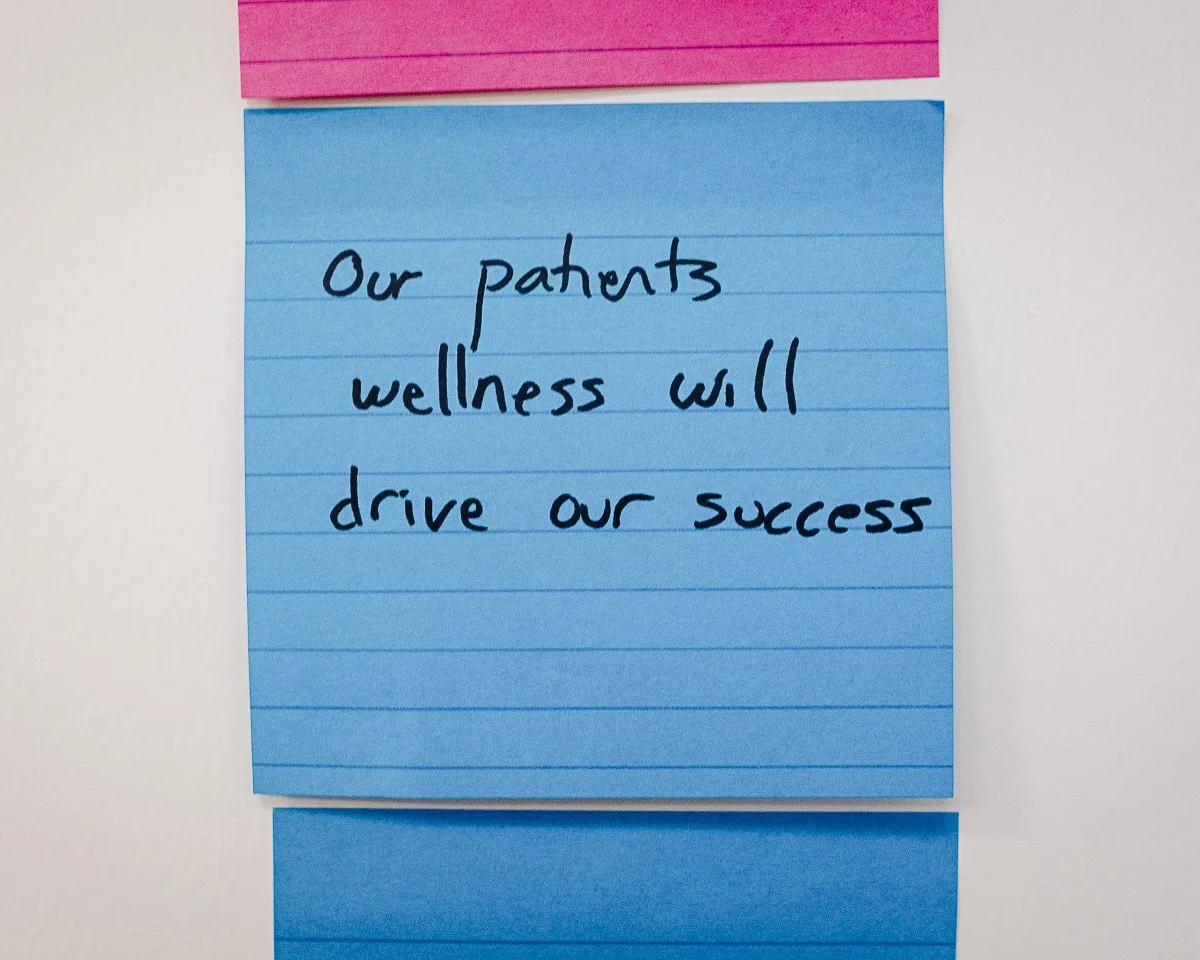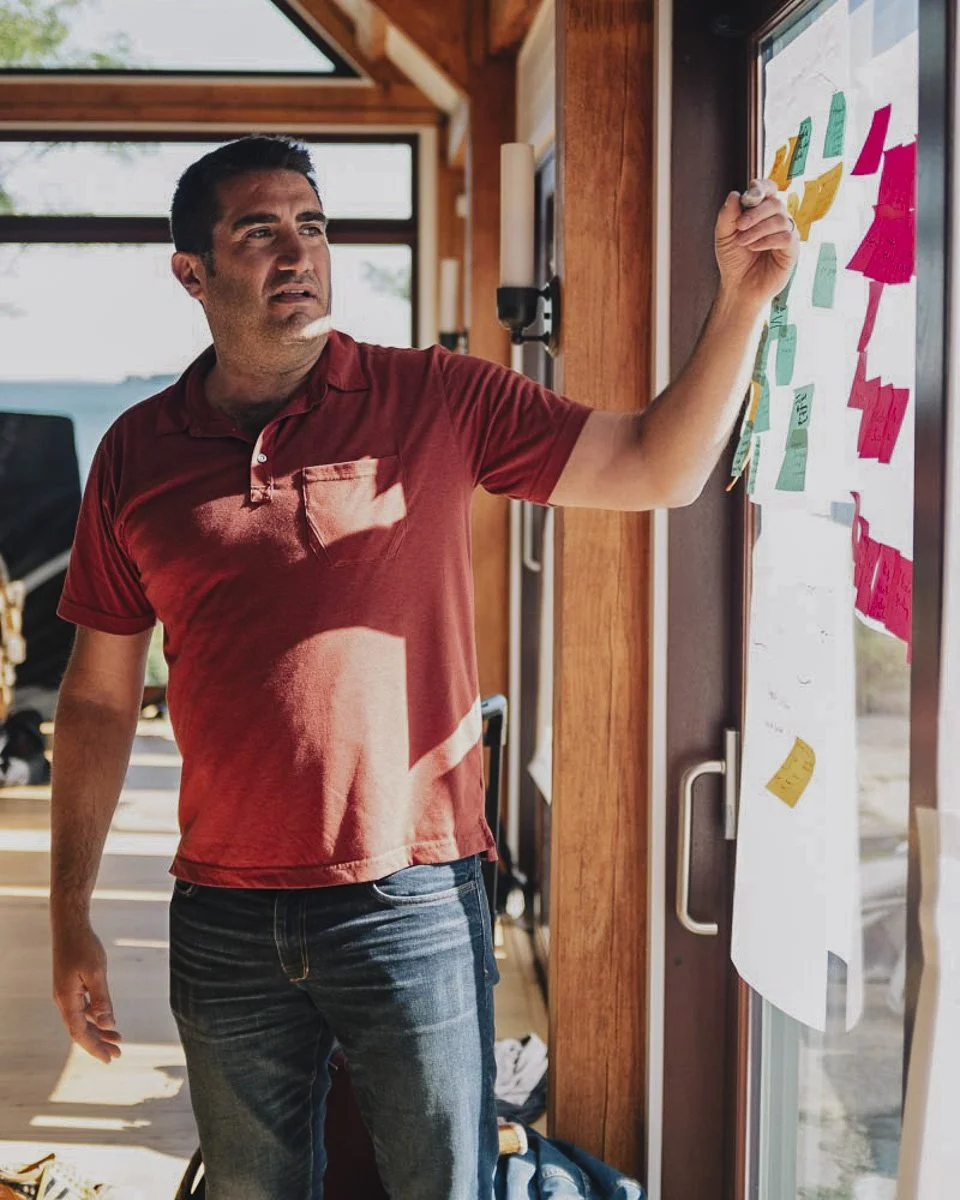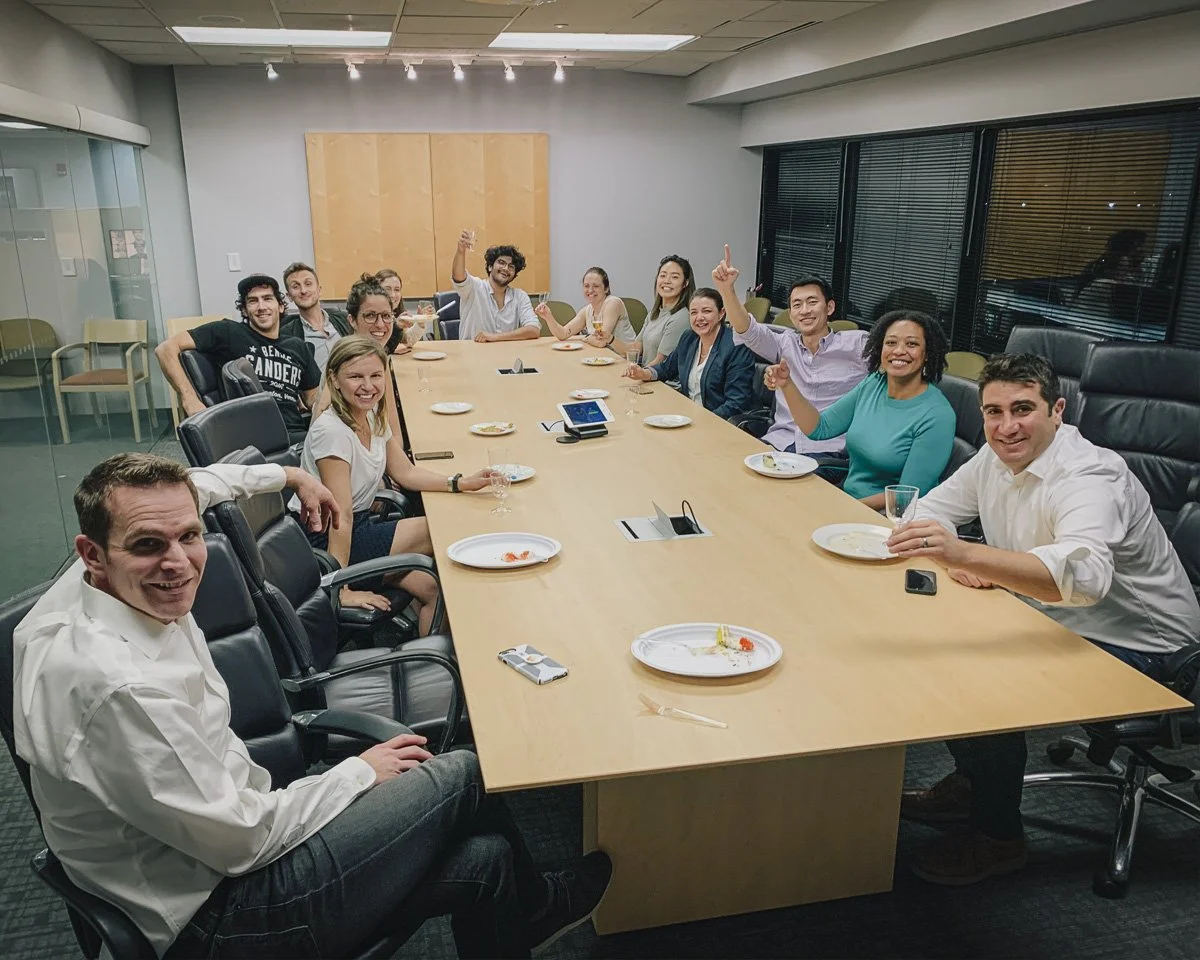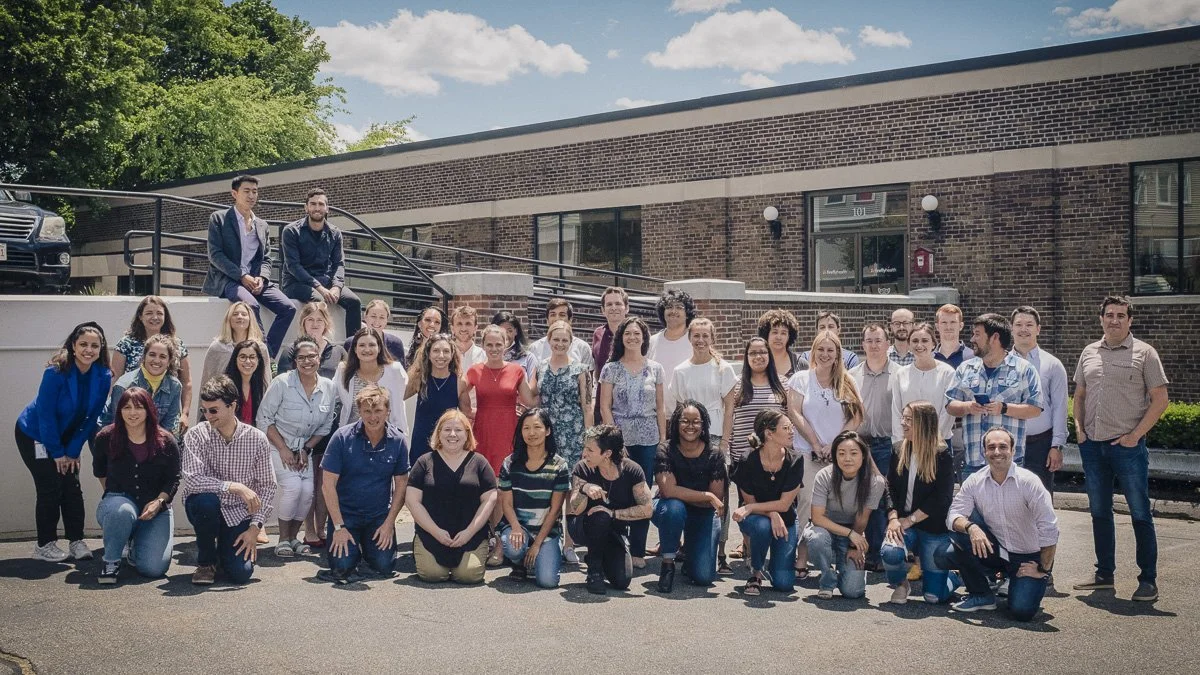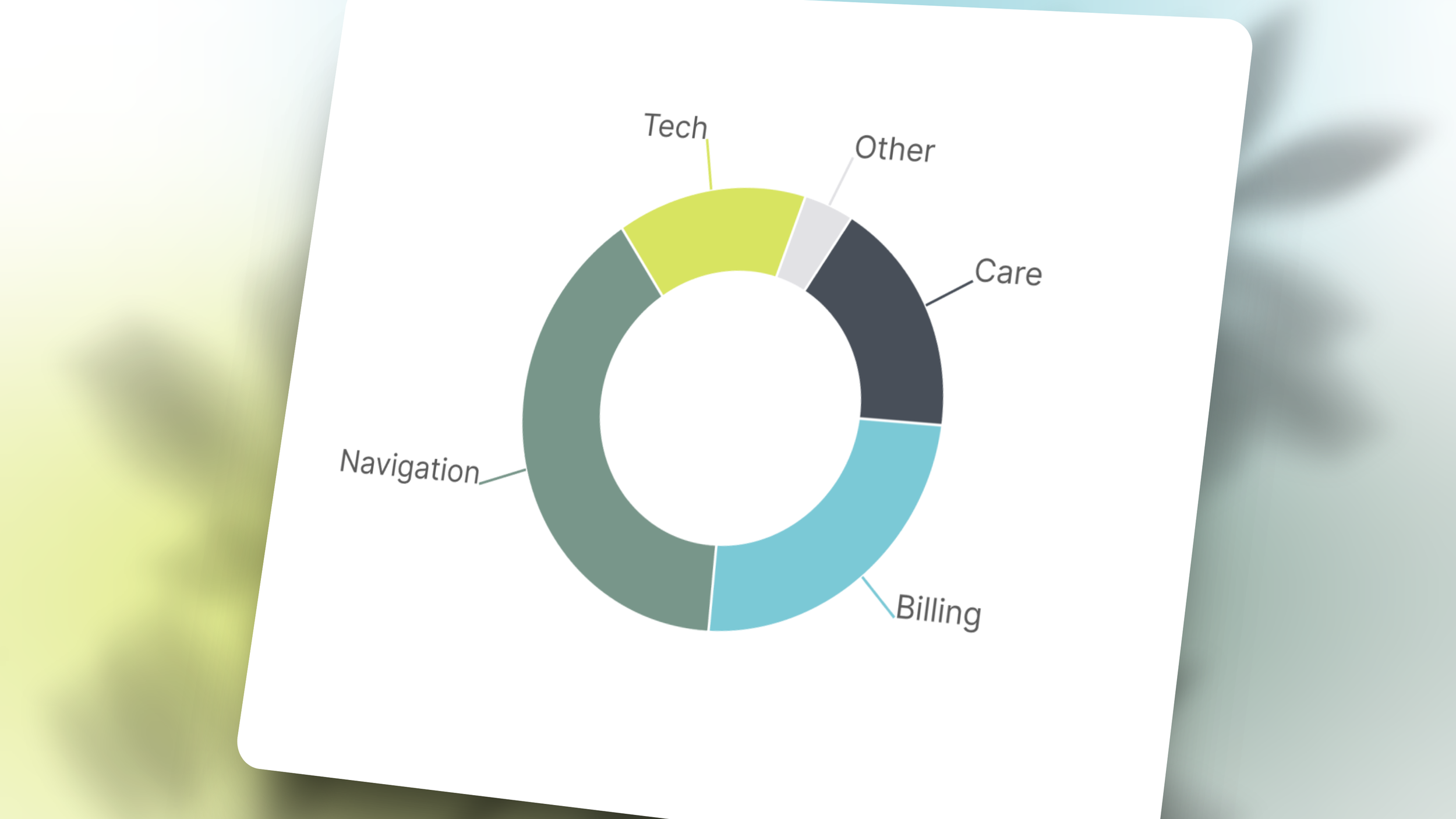CASE STUDY / MY JOURNEY AT FIREFLY HEALTHTransforming Healthcare
Timeline: 2018 - 2025
As the founding designer and Head of Product Design at Firefly Health, I spent six years translating an ambitious mission into real user experiences.
The result: Healthcare that members love while delivering better clinical outcomes at lower costs than traditional models.
“Firefly Health has re-designed healthcare and health plans the way they should have always been.”
⭐️ ⭐️ ⭐️ ⭐️ ⭐️
Anonymous, App Store review
“Super easy to get set up and was talking to a real care provider (vs a bot) right away.”
⭐️ ⭐️ ⭐️ ⭐️ ⭐️
Anonymous, App Store review
“The app is super easy to use and it's extremely convenient to stay in the comfort of your own home.”
⭐️ ⭐️ ⭐️ ⭐️ ⭐️
Ryan M, Google Business review
“Wow! I am so impressed with the ease of this app… What a game changer”
⭐️ ⭐️ ⭐️ ⭐️ ⭐️
Suzi F, Google Play Store review
“The app works flawlessly... Much better experience than at any PCP office I’ve been to.”
⭐️ ⭐️ ⭐️ ⭐️ ⭐️
Pranav K, Google Business review
“Their telehealth platform offers a seamless and user-friendly experience.”
⭐️ ⭐️ ⭐️ ⭐️ ⭐️
Gina H, Google Business review
Simply put, the U.S. healthcare system was built for 20th century problems - communicable diseases and acute care - not today's chronic conditions driven by lifestyle and behavioral choices. This mismatch drives both costs and poor outcomes. Solving this required rethinking healthcare delivery from the ground up.
Business Context
-
Despite massive investment in digital health solutions over the past decade, healthcare costs continued skyrocketing—deductibles +92%, premiums +54%
-
Healthcare evolved from simple "phone your doctor" to egregious complexity built on the insurance claim
-
Unengaged patients are 3x more likely to have unmet needs, and 2x more likely to defer care, driving costs even further
My Approach
Working in a fast-moving startup meant wearing many hats - one day I'd be conducting user research, the next building fundraising presentations, then back to designing complex clinical workflows. The constant context-switching taught me to think strategically about where design could have the biggest impact.
-
I focused on translating Firefly's ambitious vision - "half-priced healthcare that's twice as good, clinically and emotionally" - into tangible user experiences that members could understand and providers could deliver.
-
I established user research practices from scratch, conducting extensive interviews with patients and providers, facilitating service mapping workshops, and using Jobs-to-be-Done methodology to identify the experiences that would drive both engagement and health outcomes.
-
Every design decision had to align with our immediate product roadmap while building flexibility for future pivots and learnings. I created design systems and user flows that could evolve across our core capabilities, ensuring we could ship quickly in the near term while maintaining coherence as we discovered what members and the market truly needed.
-
As the sole designer initially, I was responsible for translating strategy into every screen, prototype, and user flow, but the best solutions emerged through close collaboration with clinical and engineering teams. This meant balancing rapid iteration with the precision required for healthcare applications, while ensuring designs were both technically feasible and clinically sound.
Firefly Health | 2018-2020
Act I: Building the Foundation
Context: Five-person startup with an ambitious mission but no product
Strategic decisions: Mobile-first member experience + web-based provider CRM approach
Contributions:
Launched mobile app on iOS and Android with core member experiences
Designed all user touchpoints including onboarding experience, virtual visit scheduling and management, and continuous chat with care teams
Created provider CRM enabling longitudinal care while integrating with existing EMR system
Results: Successful MVP launch, initial member base, Series A funding
I designed both a provider-facing CRM for efficient clinical workflows and a member-facing app for simple, reassuring health experiences. The challenge was creating two distinct products that served completely different user needs while working seamlessly together.
Firefly Health | 2020-2023
Act II: Growth & Iteration
Context: Post-launch scaling challenges, COVID disruption, competitive pressure
Strategic response: Ruthless prioritization focused on engagement and differentiation
Contributions:
App rebrand to stand out in crowded market
Self-service features reducing operational costs while improving UX
Revamp signup and onboarding process to increase first-appointment booking rate by 15%
Results: Strong member growth, 81 NPS, partnerships with BCBS and J.P. Morgan
During Firefly's scaling phase, I managed multiple concurrent projects including AI self-service strategy & tools for members and a signup and onboarding experience refresh, each addressing different member and business needs of our company evolution.
AI Self-Service Strategy & Tools: View Case Study >
Signup & Onboarding Redesign: View Case Study >
Firefly Health | 2022-2025
Act III: The Health Plan Transformation
Context: Strategic pivot to "virtual-first health plan", becoming a comprehensive alternative to traditional insurance
Strategic response: Massive product expansion while maintaining care experience quality
Contributions:
Comprehensive service mapping for health plan integration requirements
App re-architecture supporting Care Members, Coverage+Care Members, and Coverage-Only
Digital health plan features: ID cards, claims management, provider search, care passes
NPS tracking program with monthly company-wide reporting
The Results:
Successfully completed health plan transformation while maintaining industry-leading satisfaction
Built scalable member experiences across three distinct coverage models
Expanded partnership with BCBSMA. New partnerships with IDEXX and Westinghouse
To aid the transition from virtual primary care provider to health plan with care at its core, I developed a number of operations diagrams to align the company on where we were heading and how our core virtual care would integrate with insurance operations, member services, and third-party networks. This revealed critical gaps and opportunities.
App Re-architecture & Redesign: View Case Study >
Proving the model
-
79 NPS (rare in healthcare), 4.90/5 satisfaction scores, 15+ clinically-significant touchpoints per member per year
-
50% better outcomes than population benchmarks - 80% diabetes control vs 48% industry standard, 85% hypertension control vs 46% industry standard
-
20% employer savings on healthcare costs, ~18% TME reduction for members, enterprise contracts with major clients including BCBSMA, J.P. Morgan, and Westinghouse
-
Built user experiences that successfully transitioned from startup MVP to enterprise-grade platform serving thousands of members across multiple business models while maintaining industry-leading satisfaction scores
79
Net Promoter Score
50%
better clinical outcomes
20%
cost savings (and counting)
Insights from the journey
Healthcare requires deep empathy
Every design decision affects real people's health and wellbeing, which means going beyond usability to understand the emotional weight of healthcare experiences.
Understanding creates opportunities
Understanding business constraints and user needs creates opportunities to solve problems that seemed impossible - enabling "previously inconceivable care stories" while delivering measurable health outcomes and cost savings.
Collaboration drives innovation
The best healthcare solutions emerge when designers, clinicians, engineers, and other stakeholders work as true partners, with each discipline challenging and strengthening the others' thinking throughout the process.
Complexity as a competitive advantage
The more complex the problem space, the more design thinking can create meaningful differentiation - turning healthcare's overwhelming complexity into intuitive experiences that competitors struggle to replicate.
4.1
App Store
4.5
Google Business
3.5
Google Play
More Case Studies
Signup & Onboarding Redesign
Redesigned signup flow and onboarding process, increasing completion by 23% and first appointment scheduling by 15% while supporting three distinct member types.
AI Self-Service Strategy & Tools
Designed self-service AI tools that reduce operational costs while improving member experience for routine healthcare tasks
App Rearchitecture & Redesign
Rearchitected Firefly's core mobile app to improve user experience, reduce technical debt, and support rapid feature development as we scaled to enterprise clients.
Customer Health Monitoring
Created systematic customer intelligence program that transformed overlooked satisfaction trends into company-wide accountability, preventing cx crisis during major business pivot.
